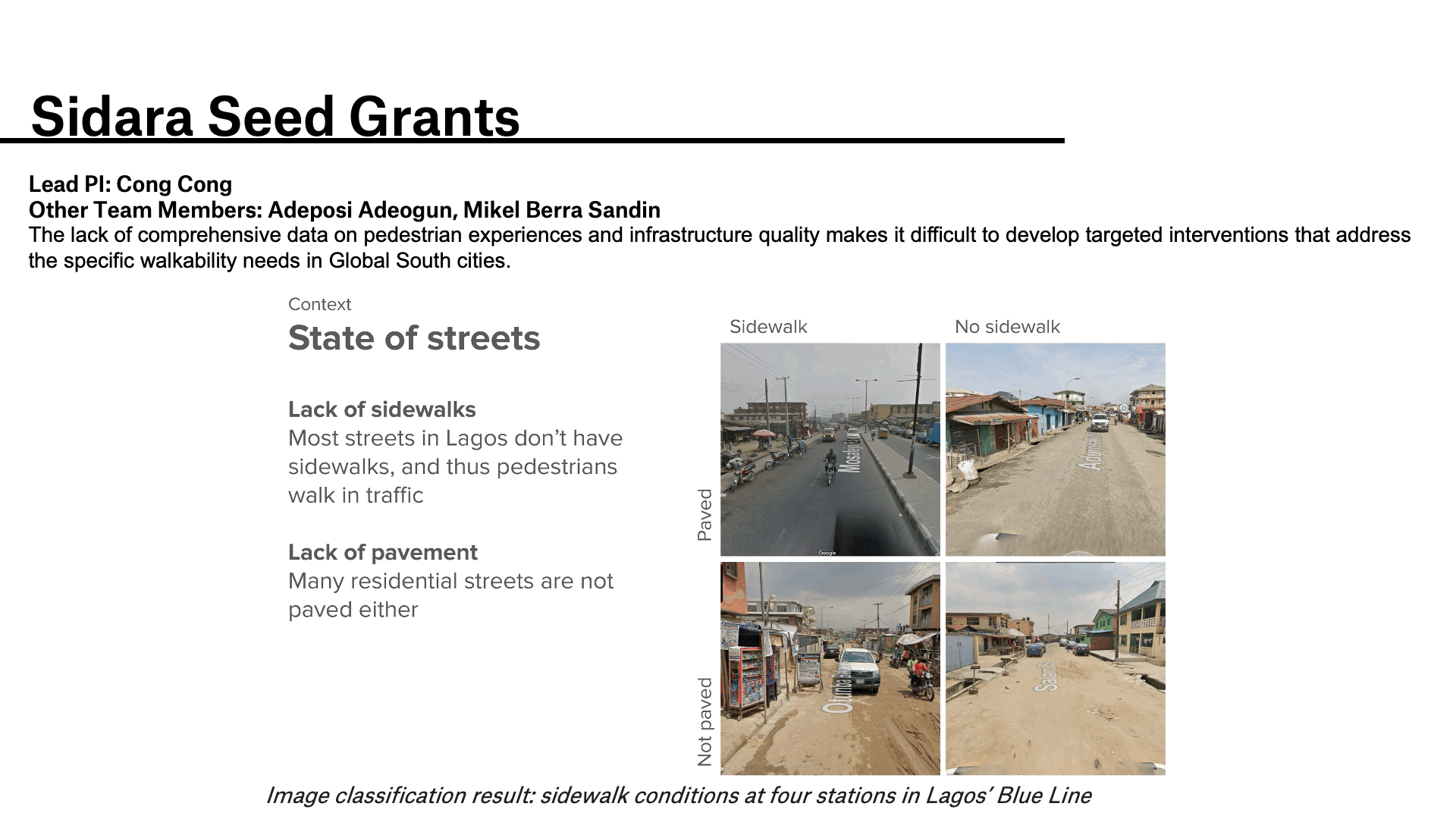2024-2026 Sidara Urban Research Seed Grant

We are pleased to showcase the 5 awardees of our most recent round of our Sidara Urban Research Seed Grants. Stay tuned for more information on our esteemed awardees.
Project: Waka Lagos: An evaluation of pedestrian access to metro stations in Lagos, Nigeria
Lead PI: Cong Cong; Other Team Members: Adeposi Adeogun, Mikel Berra Sandin
The lack of comprehensive data on pedestrian experiences and infrastructure quality makes it difficult to develop targeted interventions that address the specific walkability needs in Global South cities.
Project: Urban Observatory: Sound and Visual AI for Biodiversity Detection
Lead PI: Fabio Duarte; Other Team Members: Martina Mazzarello, Titus Venverloo, Dr. Richard J. Gill and Dr. Sarab Sethi from Imperial College
Urban ecosystems, often overshadowed by their human-made elements, harbor significant biological diversity that is critical yet challenging to monitor effectively.
Project: Beyond Prompts: Analogy-enhanced generative AI tools for urban design
Lead PI: Randall Davis; Other Team Members: Takehiko Nagakura, Rohit Sanatani
State of the art Generative AI models for design are limited by the conventional representations (i.e. stereotypes) of environments that they learn from their training data. They are often unable to respond to the diverse and subjective nature of design creativity. In many cases, outputs of prompt-based tools fail to capture the qualitative ‘essence’ of a design in the mind of a designer, even when presented with carefully crafted descriptive prompts.
Project: Thermal Realities: Turning Crowdsourced Streetscape Imagery into Thermal Digital Twins
Lead PI: Carlo Ratti; Other Team Members: Nikita Klimenko, Fabio Duarte, Umberto Fugiglando
The research problem is the inadequacy of traditional urban heat modeling tools, which are complex, resource-intensive, and often fail to accurately capture the diverse details of urban environments, hindering effective heat mitigation strategies in cities.
Project: Generative AI for Data-Driven Co-Design of Urban Infrastructures
Lead PI: Gioele Zardini; Co-PI: Jinhau Zhao
In recent years, mobility systems have undergone important mutations, driven by increasing urbanization, and by the deployment of novel mobility solutions (e.g., autonomous vehicles, ride-hailding services, micromobility). In this dynamic context, cities have to take important infrastructural and regulatory decisions, while accommodating changing travel needs of the population, accounting for the stakeholders involved, and meeting sustainability and equity goals. From the system-level perspective of transportation management, knowledge about the trajectory of technology development of new mobility solutions would certainly impact decisions on future infrastructure and provisions of service.


